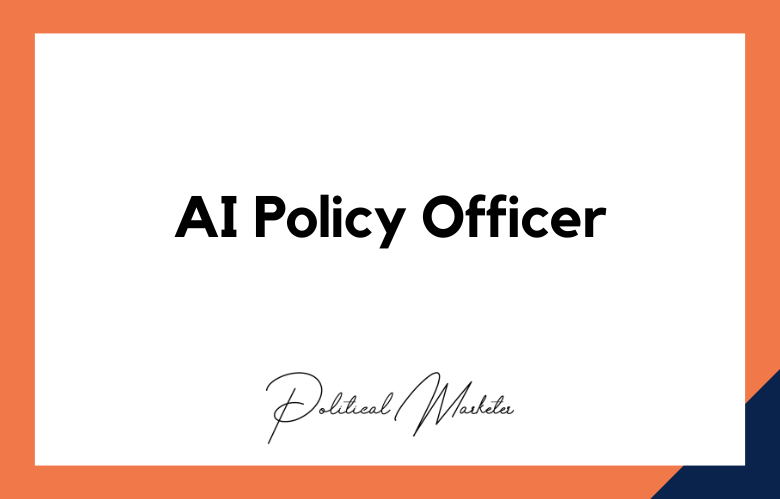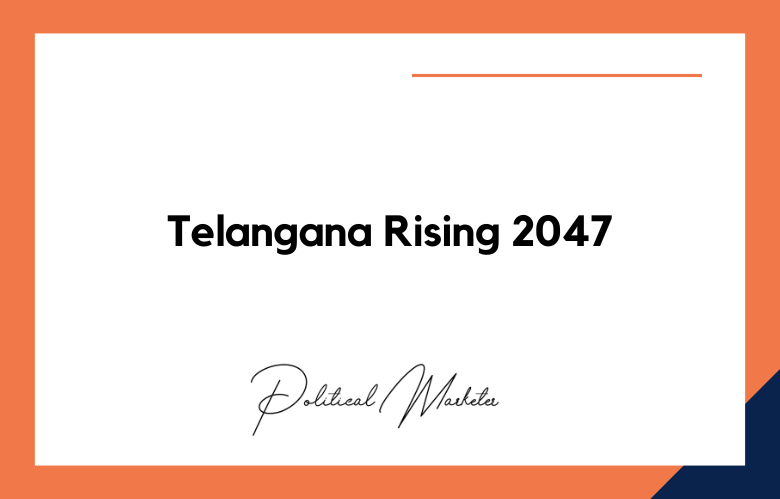In today’s dynamic and hyper-connected world, the role of marketing consultants is undergoing a remarkable evolution. Traditionally known for their expertise in crafting compelling advertising campaigns and building brand identities, marketing consultants are now called upon to navigate a complex landscape shaped by technological advancements, shifting consumer behaviors, and unprecedented levels of data availability.
- Key Takeaways
- Bridging Politics and Marketing
- Rise of Data-Driven Strategies
- Targeting Techniques in Modern Campaigns
- Digital Tools Transforming Political Advertisements
- Emotional and Psychographic Targeting
- Social Media’s Role in Political Fundraising
- The Importance of Communication in Politics
- Future Directions for Political Marketing
- Closing Thoughts
- Frequently Asked Questions
- What is the significance of data-driven strategies in modern political campaigns?
- How do digital tools transform political advertisements in the age of social media politics?
- Why is emotional and psychographic targeting important in political marketing?
- How does social media contribute to political fundraising efforts?
- What are some future directions for political marketing in evolving social media politics?
Did you know that 73% of consumers are likelier to buy from brands that share their beliefs on social issues? In today’s digital age, the role of marketing consultants is rapidly evolving due to the influence of social media politics. As online platforms become battlegrounds for ideologies and values, consultants must navigate this new landscape to help brands connect authentically with their audiences. Understanding the nuances of social media politics is now a crucial skill for consultants aiming to drive successful marketing campaigns in this dynamic environment.
Key Takeaways
- Data-Driven Strategies: Utilize data analytics to tailor marketing campaigns effectively.
- Targeting Techniques: Employ advanced targeting methods for precise audience reach.
- Digital Transformation: Embrace digital tools to enhance political advertising strategies.
- Emotional Targeting: Leverage emotional and psychographic targeting for impactful messaging.
- Social Media Fundraising: Harness social media platforms for successful political fundraising efforts.
- Effective Communication: Prioritize clear and compelling communication in political marketing endeavors.
Bridging Politics and Marketing
Challenges Faced
Due to the complexity of intertwining politics and marketing, Marketing consultants face challenges in adapting strategies to align with political campaigns. The dynamic nature of political landscapes poses hurdles for consultants.
Navigating the regulatory frameworks surrounding political advertising requires consultants to stay updated with constantly changing laws. The need to balance ethics and effectiveness adds another layer of complexity.
Opportunities Ahead
Amidst these challenges, there are opportunities for innovation in leveraging social media platforms for targeted campaigning. Consultants can harness data analytics to tailor messages effectively to diverse audiences.
The rise of influencer marketing in politics presents a new avenue for consultants to reach voters through authentic endorsements. Collaborations with influencers can enhance campaign visibility and credibility.
Importance of Understanding Political Landscapes
Understanding political landscapes is crucial for marketing consultants to craft strategies that resonate with the values and sentiments of diverse voter segments. By delving into the intricacies of political ideologies, consultants can create campaigns that align with public opinion.
Moreover, staying informed about current events and trending topics allows consultants to capitalize on real-time opportunities for engaging with audiences. This proactive approach ensures that campaigns remain relevant and responsive to evolving societal dynamics.
Rise of Data-Driven Strategies
Data Mining
Marketing consultants have embraced data mining techniques to extract valuable insights from vast datasets. By leveraging advanced analytics tools, consultants can uncover patterns, trends, and correlations that inform strategic decision-making in political campaigns.
Data mining enables consultants to identify voter preferences, behaviors, and sentiments with precision. This information is crucial for tailoring campaign messages, effectively targeting specific demographics, and maximizing voter engagement through personalized communication strategies.
Optimization Through Data Analytics
The evolution of data-driven strategies has revolutionized how marketing consultants optimize campaign performance. By harnessing the power of data analytics, consultants can measure the effectiveness of various marketing channels, messages, and tactics in real-time.
Data analytics allows consultants to track key performance indicators (KPIs), such as campaign reach, engagement rates, and conversion metrics. This data-driven approach enables consultants to make informed decisions on resource allocation, messaging adjustments, and audience segmentation for maximum impact.
Targeted Voter Segmentation
One significant advantage of data-driven strategies in political marketing is the ability to accurately target specific voter segments. Marketing consultants can utilize demographic, psychographic, and behavioral data to create targeted voter profiles that guide campaign outreach efforts.
Targeting Techniques in Modern Campaigns
Cross-Device Targeting
Cross-device targeting plays a pivotal role in modern campaigns. It allows marketing consultants to reach a diverse audience seamlessly across multiple digital platforms, ensuring that potential voters are engaged effectively regardless of the device they use.
Cross-device targeting enables consultants to maintain a consistent presence in voters’ online journey, enhancing brand recognition and message retention. By utilizing this approach, consultants can tailor their content based on the specific devices used by individuals, optimizing engagement and conversion rates.
Programmatic Advertising
Programmatic advertising has transformed the landscape of political campaigns by streamlining ad placements and enhancing targeting precision. This automated approach enables consultants to deliver personalized messages at scale, maximizing the impact of each campaign dollar spent.
Through programmatic advertising, consultants can dynamically leverage real-time data insights to adjust their strategies, ensuring that ads are displayed to the most relevant audiences at the right time. This level of granular control empowers consultants to optimize campaign performance continually and achieve higher levels of efficiency.
Lookalike Modeling and Geolocation Targeting
By incorporating lookalike modeling and geolocation targeting, marketing consultants revolutionize how they identify and engage with potential voters. Lookalike modeling allows consultants to target individuals who exhibit behaviors or characteristics similar to those of their existing supporters, effectively expanding the reach of their campaigns.
Geolocation targeting enables consultants to deliver hyper-localized messages tailored to specific regions or neighborhoods, fostering a sense of community engagement among voters. This precise targeting strategy enhances the relevance of campaign content, increasing voter resonance and driving meaningful interactions.
Digital Tools Transforming Political Advertisements
Personalized Campaign Content
Marketing consultants leverage digital tools to craft tailored and captivating campaign messages that resonate with specific audience segments. By analyzing data from social media platforms, consultants can understand voters’ preferences, behaviors, and interests. This insight allows them to create personalized content that connects on a deeper level with the target demographic.
Utilizing advanced algorithms and analytics, consultants can design relevant and engaging campaign strategies. They can segment audiences based on various factors such as age, location, online activity, and political affiliations. This segmentation enables consultants to deliver customized messages that are more likely to capture attention and drive engagement.
Amplified Reach through Social Media
ial media platforms play a pivotal role in amplifying the reach and impact of political advertisements. With billions of users worldwide, platforms like Facebook, Twitter, and Instagram offer a vast landscape for disseminating campaign messages. Marketing consultants harness the power of these platforms to target specific demographics, engage with voters in real-time, and monitor the performance of their ads.
Consultants can reach audiences with precision through targeted advertising features provided by social media platforms. They can tailor their ads based on demographics, interests, online behavior, and political inclinations. This hyper-targeted approach ensures that campaign messages are delivered to individuals most likely receptive.
Data-Driven Decision Making
In the age of social media politics, marketing consultants rely heavily on data-driven insights to inform their strategies. By analyzing metrics such as click-through rates, engagement levels, conversion rates, and audience demographics, consultants can refine their campaigns for maximum effectiveness. This iterative process allows them to make real-time adjustments based on performance data and audience feedback.
Moreover, digital tools enable consultants to conduct A/B testing to determine which ad creatives or messaging resonates best with the target audience. By experimenting with different variables such as images, headlines, calls-to-action, and ad formats, consultants can optimize their campaigns for higher conversion rates.
Emotional and Psychographic Targeting
Emotional Targeting
Emotional targeting is pivotal in influencing voter behavior and perceptions during political campaigns. Marketing consultants can effectively sway voter opinions by appealing to emotions such as fear, hope, anger, or joy. This strategy aims to create a deep connection with voters on an emotional level, driving them towards a particular candidate or party.
Marketing consultants leverage emotional targeting through various mediums, including social media, television advertisements, and campaign rallies. For instance, a heartfelt story shared on social media can evoke empathy and resonate with voters prioritizing compassion and kindness in their decision-making process.
Pros
- Establishes a personal connection with voters.
- It can evoke strong reactions and shape perceptions effectively.
Cons
- This may lead to backlash if emotions are manipulated or misrepresented.
- Effectiveness varies based on individual preferences and beliefs.
Psychographic Targeting
In political marketing, psychographic targeting involves segmenting voters based on personality traits, values, interests, and lifestyles. This approach goes beyond demographics to understand the intricate nuances of voter behavior. By categorizing individuals into distinct psychographic profiles, consultants can tailor messages that align with their unique characteristics.
Through extensive data analysis and research, marketing consultants identify key psychographic segments within the electorate. For example, they may target environmentally conscious voters by highlighting a candidate’s green initiatives or appeal to socially liberal voters by emphasizing progressive policies.
- Segmentation based on values: Consultants categorize voters into groups with similar ideologies.
- Tailored messaging: Craft messages that resonate with each psychographic segment’s beliefs and values.
Social Media’s Role in Political Fundraising
Leveraging Platforms
Marketing consultants utilize social media platforms to facilitate political fundraising efforts effectively. They strategically leverage the broad reach and targeting capabilities of platforms like Facebook, Twitter, and Instagram.
The ability to micro-target specific demographics based on interests, behaviors, and affiliations enables consultants to tailor donation campaigns for maximum impact. By analyzing user data, consultants can more accurately identify potential donors.
Strategic Campaigns
Marketing consultants employ various strategies to optimize social media for political fundraising. They craft compelling narratives that resonate with target audiences, utilizing emotional triggers to drive engagement and donations.
Implementing call-to-action buttons, personalized messages, and interactive content enhances user involvement. Consultants continuously analyze metrics to refine strategies and ensure campaign effectiveness.
Driving Success
ial media engagement plays a pivotal role in driving fundraising success for political initiatives. The direct interaction between campaigns and supporters fosters a sense of community and belonging, encouraging recurring donations.
Real-time updates on fundraising milestones, live streams of events, and behind-the-scenes content create transparency and build trust with donors. This transparency enhances credibility and increases donor loyalty.
The Importance of Communication in Politics
Effective Communication Strategies
Marketing consultants are pivotal in shaping public opinion and political narratives through strategic communication. They craft messages that resonate with voters, leveraging various platforms to amplify their reach. Consultants can effectively engage with diverse audiences by tailoring content to specific demographics.
Challenges and Opportunities
Navigating the political communication landscape presents challenges and opportunities for marketing consultants. Maintaining transparency and authenticity is crucial amidst the prevalence of misinformation online. However, this digital era also offers unprecedented avenues for direct engagement with constituents.
Impact on Public Perception
How political messages are communicated can significantly influence how the public perceives them. Clear and compelling messaging can sway opinions, mobilize support, and shape the overall narrative surrounding a candidate or issue. Marketing consultants must continuously adapt their strategies to resonate with evolving audience preferences.
Leveraging Social Media Platforms
In today’s digital age, social media platforms are powerful tools for disseminating political messages. Marketing consultants harness the potential of platforms like Twitter, Facebook, and Instagram to engage with voters in real-time. These platforms enable rapid dissemination of information and facilitate direct interaction with constituents.
Embracing Authenticity
Authenticity is critical to establishing credibility and trust among voters. Marketing consultants must ensure that their messaging aligns with the values and beliefs of their target audience. Consultants can build lasting relationships with constituents by fostering genuine connections through authentic communication.
Future Directions for Political Marketing
Emerging Trends
Political marketing is evolving rapidly, with emerging trends shaping its future. One key trend is the increasing utilization of artificial intelligence (AI) and machine learning in targeting voters. These technologies allow for more personalized and targeted messaging, enhancing engagement and persuasion.
Impact of Evolving Technologies
The integration of big data analytics is revolutionizing political campaign management. By analyzing vast data, consultants can gain valuable insights into voter preferences and behaviors. This enables them to tailor messages effectively, maximizing impact.
Changing Political Landscapes
In the digital age, political landscapes are constantly shifting due to the influence of social media and online platforms. Marketing consultants must adapt to these changes by leveraging digital tools for outreach and engagement. They must navigate the complexities of online discourse and polarization to craft effective strategies.
Pros
- Enhanced targeting capabilities
- Improved data-driven decision-making
Cons
- Privacy concerns with data collection
- Challenges in navigating online misinformation
Political marketing consultants must balance ethical considerations with effective campaigning strategies. Staying ahead of trends and innovations will be crucial for success in this dynamic field as technology continues to advance.
Closing Thoughts
You’ve delved into the evolving landscape where politics and marketing intersect, witnessing the power of data-driven strategies, targeted techniques, and digital tools in shaping modern campaigns. The fusion of emotional and psychographic targeting with social media’s pivotal role in fundraising has redefined political communication. As you look ahead to future directions in political marketing, embracing innovation and adaptability will be vital to staying ahead in this dynamic arena.
Explore how these insights can inform your approach to marketing consultancy in the age of social media politics. Embrace the changing tides, leverage technology, and prioritize effective communication to successfully navigate the complexities of modern political landscapes. Your ability to integrate these strategies will enhance your consultancy services and drive impactful results for your clients. Keep evolving, stay informed, and lead the way in shaping the future of political marketing.
Frequently Asked Questions
What is the significance of data-driven strategies in modern political campaigns?
Data-driven strategies play a crucial role in modern political campaigns. They enable targeted messaging, optimize resources, and enhance voter engagement through personalized communication.
How do digital tools transform political advertisements in the age of social media politics?
Digital tools revolutionize political advertisements by offering precise targeting capabilities, real-time analytics for campaign optimization, and the ability to reach a wider audience at a lower cost than traditional media channels.
Why is emotional and psychographic targeting important in political marketing?
Emotional and psychographic targeting helps political marketers understand voters’ motivations, values, and beliefs. This allows them to create more resonant messaging that connects on an emotional level and effectively influences decision-making.
How does social media contribute to political fundraising efforts?
ial media platforms provide a powerful avenue for political fundraising by facilitating easy donation processes, enabling widespread reach to potential donors, fostering community engagement around causes, and leveraging peer-to-peer sharing for increased contributions.
What are some future directions for political marketing in evolving social media politics?
Future directions for political marketing include an increased focus on authenticity and transparency, leveraging emerging technologies like AI for personalized voter outreach, adapting to changing social media algorithms for better visibility, and seamlessly integrating online campaigning strategies.










